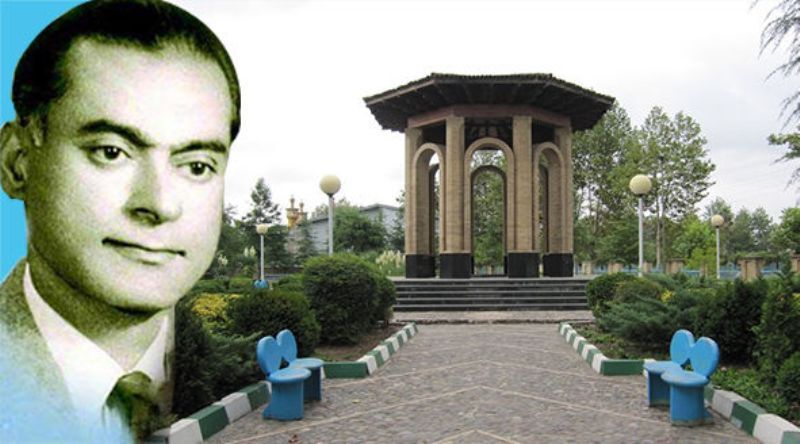Mohammad Moein was born in April 30, 1918 in Rash city, north of Iran. He lost his mother in age six and his father – a religious seminary student, five days later. His paternal grandfather, Shaykh Mohammad Taqi Moein-od-Din who was renowned religious scholar, adopted him. Moein received elementary education at home and when modern education came to Rasht, he went to a modern school to receive elementary and secondary education.
He finished high school in the famous Dar ul-Funun and obtained his BA in Literature and Philosophy in 1934, writing his dissertation about Leconte de Lisle, the 19th century French poet of the Parnassian movement.
Moein then became a high school teacher in Ahvaz, southwest Iran, and once he showed competency, he was assigned as director of the high school after three months. During his tenure as director, he also took corresponding courses of Applied Psychology in Brussels Psychology Schools through distance education.
In 1939 he returned to Tehran and started his doctoral research in Persian Language and Literature at Tehran University, culminating in a thesis with the title "Mazdayasna and its Influence on Persian Literature" after which he became the first person in Iran to receive a PhD in Persian Language and Literature.
He was later appointed full professor at University of Tehran, from which position he was subsequently promoted as Distinguished Professor to the Chair of Literary Criticism and Research in Literary Texts at the same university.
Since he was master at English, French, Arabic and some archaic Iranian languages, he was invited or dispatched by Iranian government to international conferences in many countries. He also received several medals of honor from Iranian and foreign governments and academic institutes.
Moein cooperated with Ali-Akbar Dehkhoda in compiling the 200-volume Dekhoda Dictionary, the largest comprehensive Persian dictionary ever published, and was assign chief editor of the dictionary according to Dehkhoda's will after he died.
He left a plethora of scientific works, including writing 23 books, editing five archaic books, translating four books and about 100 articles on literature and language, history and culture, bibliography of philosophy. The six-volume Encyclopedic Dictionary and critical edition of the 17th Persian dictionary, Borhan-e Qate', are among the most important and prominent works of Moein.
He took over 300,000 notes from hundreds of books in different library of different counties around the world to compile his Persian dictionary and 400 students helped him in the effort.
Mohammad Moein suffered a stroke in November 30, 1966. After several days that he could speak, he went into a coma which lasted for five years. Several neurologists from USSR and Britain came in vein to Iran to treat him. His unconscious body was sent to Canada in hope of being treated, but he was brought back three months later. Eventually, Moein died in July 4, 1971 and was buried in a family grave house in Astaneh Ashrafieh, north of Iran.
9416**1416
Follow us on Twitter @IrnaEnglish



Your Comment